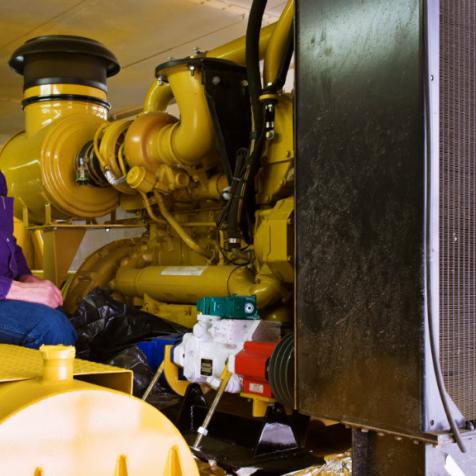
Company Details
Location
Lamar, Colorado
Founded
1947
Ownership Type
Private
Employees
39
Products
Industrial Grinders
Lamar, Colorado
Founded: 1947
Privately owned
Employees: 39
President Jon Littler is guiding the venerable manufacturer of industrial grinders by keeping the machines simple, effective, and tough as nails.
The W.H.O. in W.H.O. Manufacturing stands for Walter Henry Oberwortmann, who founded the company in 1947. He invented and patented a tub grinder to help bale alfalfa that remains the company's core product today.
"He was in the alfalfa business," says Littler, the late Oberwortmann's great-grandson. "He saw a need to make it easier and more efficient. He built the first one for himself."

The patent on his tub grinder expired in 1969, says Littler, who took over running the company from his father, also Jon, in 2013, but it remains W.H.O.'s core product.
"It can grind anything from alfalfa to corn stalk," says Littler. "We have a pretty good reputation, because we've done it forever. We've got machines in the top 10 feedlots across the country."
End users also use W.H.O. grinders to process grains, wood waste, landfill-bound trash, and industrial waste today. The average price of a machine is about $350,000 says Littler.
The big change is the move from "cookie-cutter machines to customized machines," says Littler. "They cost three times as much but they take three times as long to make." About 90 percent of grinders are made to order based on customer requests for a certain size, application, or control system.

The market has also grown and changed over the company's long history. "We sell globally," says Littler, noting that about 20 percent of the company's business is international, with dealers in Japan, Saudi Arabia, Mexico, Australia, and other countries.
What hasn't changed is the durability of a W.H.O. machine. "We build a solid product," says Littler. "We build for farmers and ranchers."
The key to making a bulletproof tub grinder is "simplicity," he adds, "so they can work on it."
W.H.O. has added remote controls and other innovations over the years, but too much technology can make a farmer's life more difficult. "You start adding headaches," says Littler. "Typically, your mom-and-pop cattle operation, they have a few guys and a limited budget."

"We've got machines that are 40 or 50 years old that are still running," says Littler. The very first machine his great-grandfather built was running until the mill that owned it shut down about a decade ago, he adds. "It's still operable."
Challenges: "The economy," says Littler. "Everybody says the economy's great, but it's not great. Agricultural stuff is up and down." He points to the price of a ton of hay dropping from about $300 to $100 since 2014.
But there's no easy fix. "There are broad variables," he adds. "Cheap fuel is hurting everybody."
Opportunities: More exports. "The Japanese market looks like it's going to get a little bit better," says Littler. "We've got a good dealer over there."

Needs: "Workforce is a concern," says Littler. "Finding people who want to work is hard."
Cash flow is another need, he adds. "It all boils down to money. You don't want to overextend yourself.
